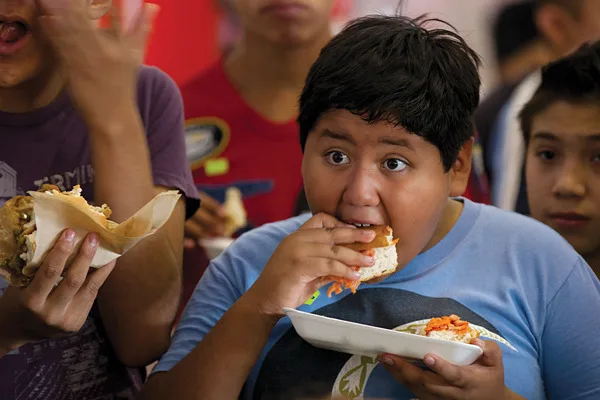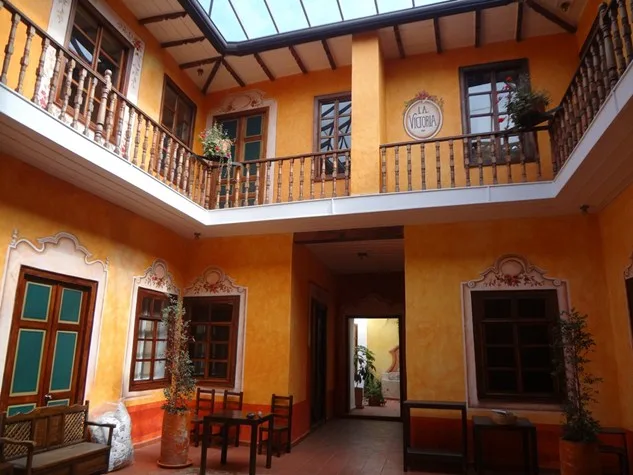Latin American countries, including Ecuador, fight fast and processed food; the industry fights back to protect its market share
By Amy Guthrie
From a Mexican tax on sugary drinks, to legislation banning Happy Meal toys in Chile and Peru, to Ecuador’s president asking why consumers should support multi-national corporations that spread obesity, Latin America is becoming a laboratory for public policies meant to steer consumers away from processed food.
 Since 2012, Peru, Uruguay and Costa Rica have banned junk food from public schools. Ecuador recently implemented a nutritional label system inspired by a traffic light, in which warnings of high salt, sugar and fat content are placed on red circles; lower levels will be indicated on yellow or green circles. Industrial food makers in Ecuador will also be barred from using images of animal characters, cartoon personalities or celebrities to promote products high in salt, sugar or fat.
Since 2012, Peru, Uruguay and Costa Rica have banned junk food from public schools. Ecuador recently implemented a nutritional label system inspired by a traffic light, in which warnings of high salt, sugar and fat content are placed on red circles; lower levels will be indicated on yellow or green circles. Industrial food makers in Ecuador will also be barred from using images of animal characters, cartoon personalities or celebrities to promote products high in salt, sugar or fat.
In October, Mexico’s congress passed a special tax of 8% on packaged foods like potato chips, as well as a per-liter tax of one peso, or about eight U.S. cents, on sugary beverages. The beverage tax is widely seen as the most significant attempt yet to curb sugary-drink intake in a large country, given that Mexico is the Coca-Cola Co. ‘s second-biggest market in the world by volume sales.
Colombia’s health minister has already suggested applying a sugary-beverage tax in his country.
Similar regulations have been floated, but often quashed, in more-developed countries. Proposed soda taxes, for example, have failed time and again to be enacted in the U.S., most recently getting knocked down in Telluride, Colo. But because many governments in Latin America lean to the left, and don’t always have the best relationships with corporations, the incentives to eat healthier just might stick—and then spread to other parts of the world.

An obesity epidemic has been declared in Mexico. Authorities there say it is an import from the U.S.
Barry Popkin, a professor at the University of North Carolina’s Gillings School of Global Public Health and author of a book titled “The World is Fat,” said the Mexican beverage tax could follow the course of disincentives on smoking that have taken hold in many countries. “We’ll have evidence within a couple of years. That’s when you start to see the domino effect.”
Obesity has become a major problem in Latin America, and the trend coincides with Latin America becoming an important growth region for multinational food and beverage corporations that face sagging sales in core markets. In 2012, PepsiCo Inc.’s Latin America food volume sales soared 13% while contracting 1% in North America. Latin America accounted for more than 12% of PepsiCo’s $65.5 billion in global sales that year.
Several studies report that within the last year, Mexico has overtaken the U.S. for the distinction of being the most overweight country in the world. Other Latin American countries are also seeing a spike in obesity rates, blamed primarily on fast and processed food and drink.
Multinational food corporations argue in closed-door meetings with government officials that snack food is a staple for the poor. Food companies also emphasize their role as investors, employers and contributors to economic growth. Yet they are wary of bringing legal challenges against the junk-food laws, for fear that they will look like bad corporate citizens.
“The corporate image issue is a big thing, especially for a U.S. multinational,” said Manuel Solano, head of the international tax services group in Latin America for Ernst & Young’s Mexico member firm.
Corporate efforts have stalled initiatives in some countries. In Chile, legislators in mid-2012 banned toys in children’s fast-food meals as part of a broader law on junk food. But when the Ministry of Health issued the rules in July 2013, it allowed companies to give away toys and stickers if they carried a registered trademark.
“The industry is playing backroom politics,” said Ricardo Uauy, professor of public health nutrition at the London School of Hygiene and Tropical Medicine and at the University of Chile.
Guido Girardi, the Chilean senator and physician who wrote that country’s law against junk food, expects that Chile will get tougher on processed food once Michelle Bachelet, a socialist and pediatrician, returns to the presidency in March. And he hopes to win her support for a tax on sugary beverages.
Woods Staton, chief executive of Arcos Dorados Holdings, the largest operator of McDonald’s restaurants in Latin America and the Caribbean, takes issue with the argument that McDonald’s uses toys and playgrounds to lure kids into unhealthy eating habits. He says his chain offers a balanced meal, with salt, fat and added sugar within dietary guidelines.
Staton says McDonald’s is an aspirational brand in Latin America that caters mostly to upwardly mobile middle-class families, whereas obesity is hitting the region’s poorest the hardest.
“Those kids can’t afford to come to McDonald’s,” said Staton.
Ecuador’s President Rafael Correa doesn’t cut McDonald’s any slack, pointing to nutrition surveys that defy company PR. “If this what we get from the world’s big food corporations, I think we should just say ‘no thanks’,” he says.
Researchers see a correlation between countries with serious health problems and high consumption of snacks, soda and other industrialized foods.
Mexicans allot 45% of their household food expenditure to packaged foods, according to Euromonitor International data. Chileans are on par with Americans, spending 63% of their food budgets on packaged products. In both Chile and Mexico, roughly seven out of 10 adults, and nearly a third of children, are overweight, and diabetes threatens to overwhelm the countries’ health systems.
“Mexico and Chile bought into the idea of modernity being junk food and Coca-Cola. Now they’re paying for that,” said Enrique Jacoby, regional adviser for healthy eating and active living at the Pan-American Health Organization.
But he believes that other countries in the region stand a fighting chance of recovering their whole-food traditions, and staving off the advance of obesity and diabetes.
In Peru, packaged food represents just 23% of household food spending while about half of adults and a quarter of children are overweight. “We have to safeguard our ancestral culinary traditions,” said Jaime Delgado, a Peruvian congressman who fought to block junk food from public schools and crack down on marketing high-calorie food to kids.
“Why have we allowed the rules to be set by the companies selling the food? This stuff is ultraprocessed. It’s not even food,” said Mr. Delgado. “Nobody advertises bananas and apples.”
Credit: Article and graphic, Wall Street Journal, http://online.wsj.com/





















